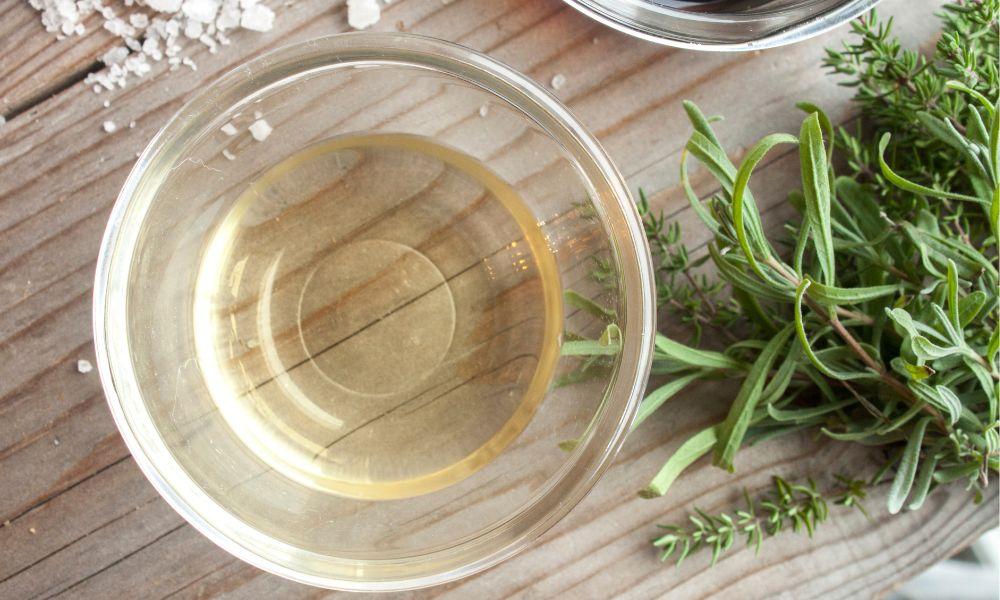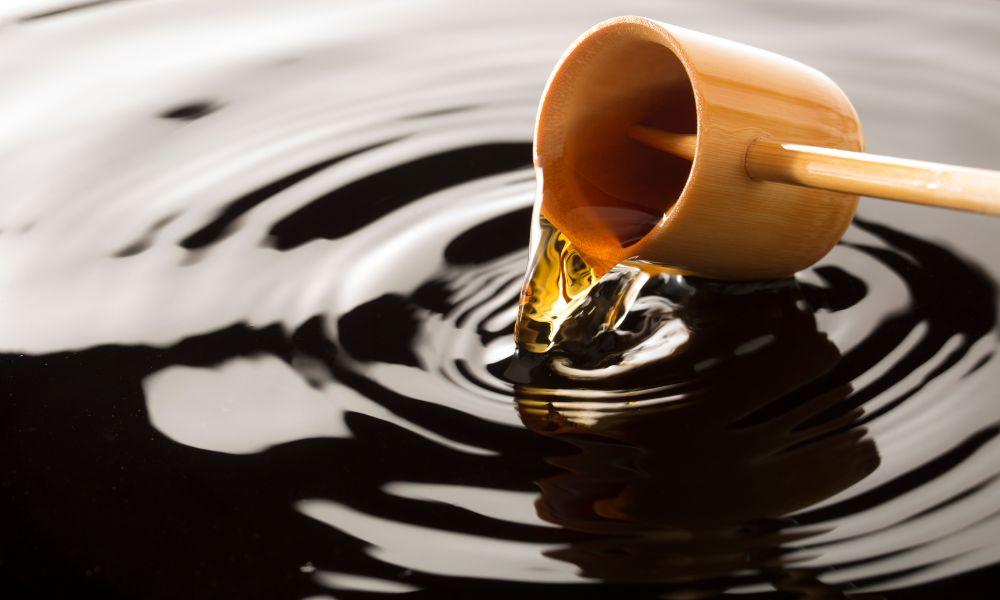When you roll out your culinary chops to prepare a gourmet-style dinner at home, certain ingredients become the magic wands in your recipe arsenal. One such magic wand is white wine vinegar. Providing a subtle, yet complex flavor base for a variety of dishes, this vinegar plays a vital role in gourmet cooking. But, what happens when your favorite bottle has been sitting on the shelf for a while. Can white wine vinegar go bad?
The Science Behind White Wine Vinegar’s Longevity

One of the many charms of white wine vinegar emanates from its captivatingly long shelf life. But, how does this happen? Its secret lies in the production process – a fascinating occurrence known as vinegar fermentation.
The Production Process
Vinegar fermentation is an intriguing process by which you transform the alcohol present in substances like wine, beer or cider into acetic acid. This conversion is orchestrated by acetobacter, a beneficial bacteria that thrives in alcohol and stimulates the transformation. The resultant acetic acid not only imparts that characteristic tangy flavor to the vinegar, but it also serves as a fantastic preservative. This gives white wine vinegar an almost-vampirical lifespan, allowing it to outlive many other culinary staples.
Proper Storage Techniques for White Wine Vinegar

While the longevity of vinegar can be largely attributed to acetic acid, its quality and potency can be extended even further with proper storage conditions.
Before Opening
Before the seal is broken, white wine vinegar is quite robust and can withstand a wide range of storage environments. Although, similar to a fine bottle of wine, white wine vinegar prefers cooler conditions away from direct sunlight. The ideal vinegar storage conditions are a cool, dark cupboard, with a steady temperature. Providing such a surrounding ensures that the vinegar’s characteristics are preserved and the risks of the vinegar losing potency are minimized.
After Opening
Once opened, the story changes slightly. The key here is to seal the bottle tightly after each use to deter unwanted contaminants. On the subject of refrigeration, there seems to be a popular myth circling around, but the truth is, vinegar doesn’t need refrigeration. In fact, storing vinegar in the refrigerator doesn’t provide any significant advantage in terms of maintaining its quality. Wherever you store it, remember to ensure the bottle’s tight seal.
Debunking the “Best-By” Date Myth
Have you noticed a mysterious date printed on your vinegar bottle and wondered, “Is expired vinegar harmful?”. Worry not, it’s just the manufacturer’s recommended “Best-by” date. This date serves merely as a guideline, suggesting when the product might start to lose its optimal quality and flavor. But it’s not an expiration date.
When it comes to acidity, vinegar stands in the tough guys’ corner, clocking a strong pH balance. This highly acidic nature extends its life far beyond the best-by date while also acting as a deterrent against harmful bacteria. Therefore, the risk of your white wine vinegar turning into a ghoul past this date is slim to none.
The Mother of Vinegar: What Is It and Is It Safe?

One of the unsung heroes of the vinegar fermentation process, the “Mother of Vinegar,” deserves the limelight. This gelatinous, cellulose-based substance is a natural byproduct of vinegar production.
The Mother comprises beneficial bacteria and enzymes that are crucial in the fermentation process. It’s completely safe to consume and is often believed to hold numerous benefits of vinegar mother including enhancing digestion and boosting immunity.
However, the presence of the Mother can often lead to confusion; especially when fine, thread-like structures start to form at the bottom of the bottle or a cloudy appearance catches your eye. Fear not, these are merely indicators of ongoing fermentation and are a sign of natural, unpasteurized vinegar.
Signs That Your White Wine Vinegar Might Be Compromised
While it’s highly improbable for white wine vinegar to go bad, there might be instances where it could potentially be compromised. Let’s explore some signs to look out for.
Visual Indicators
The first call to action when sleuthing for compromised vinegar is to engage your eyes. Changes in color or the presence of foreign particles in the vinegar might signal that things are amiss. Unlike the harmless ‘Mother of Vinegar,’ these unexpected sediments could indicate contamination.
Olfactory and Taste Tests
Moving on, trust your nose and taste buds to complete the investigation. When the smell or taste of white wine vinegar turns distinctly unpalatable or extremely sharp, consider it a red flag. It’s also worth noting that while vinegar does have a strong, somewhat pungent odor, it should not be unpleasant.
Maximizing the Quality of Your White Wine Vinegar
Now that we’ve cracked the code of recognizing a compromised vinegar, it’s equally crucial to maintain its top quality and ensure that it remains a worthy companion in your culinary adventures.
Regularly evaluate your vinegar’s quality using the sensory tests described above. You might also want to occasionally revisit its storage condition to ascertain that it adheres to the guidelines provided to maximize its life. Beyond these, like many other fine ingredients, vinegar arguably tastes better as it matures. However, over an extended period, it may eventually lose its potency and no longer provide the sharp flavor you might be seeking. Hence, it’s recommended to use your vinegar within a couple of years from opening, though it will still be safe to consume beyond that.
👩🍳You may also like: Top 12 Effective White Wine Vinegar Substitutes in Your Kitchen
Conclusion
Our exploration comes to a close here, and we hope you now have a comprehensive understanding of the dynamics involving white wine vinegar’s shelf life. From the magical vinegar fermentation process to the debunking of myths, and practical tips on optimal storage – we’ve covered a gamut of topics.
We’ve also established that vinegar is a mighty ally and can maintain its safe-to-consume status for an impressively long time, mostly inherited from its robustly acidic demeanor and sterilizing prowess. Despite its hardiness, it still requires your attention to subtle signs of quality change. So, happy cooking, and don’t forget to enjoy the numerous benefits of white wine vinegar in your recipes!